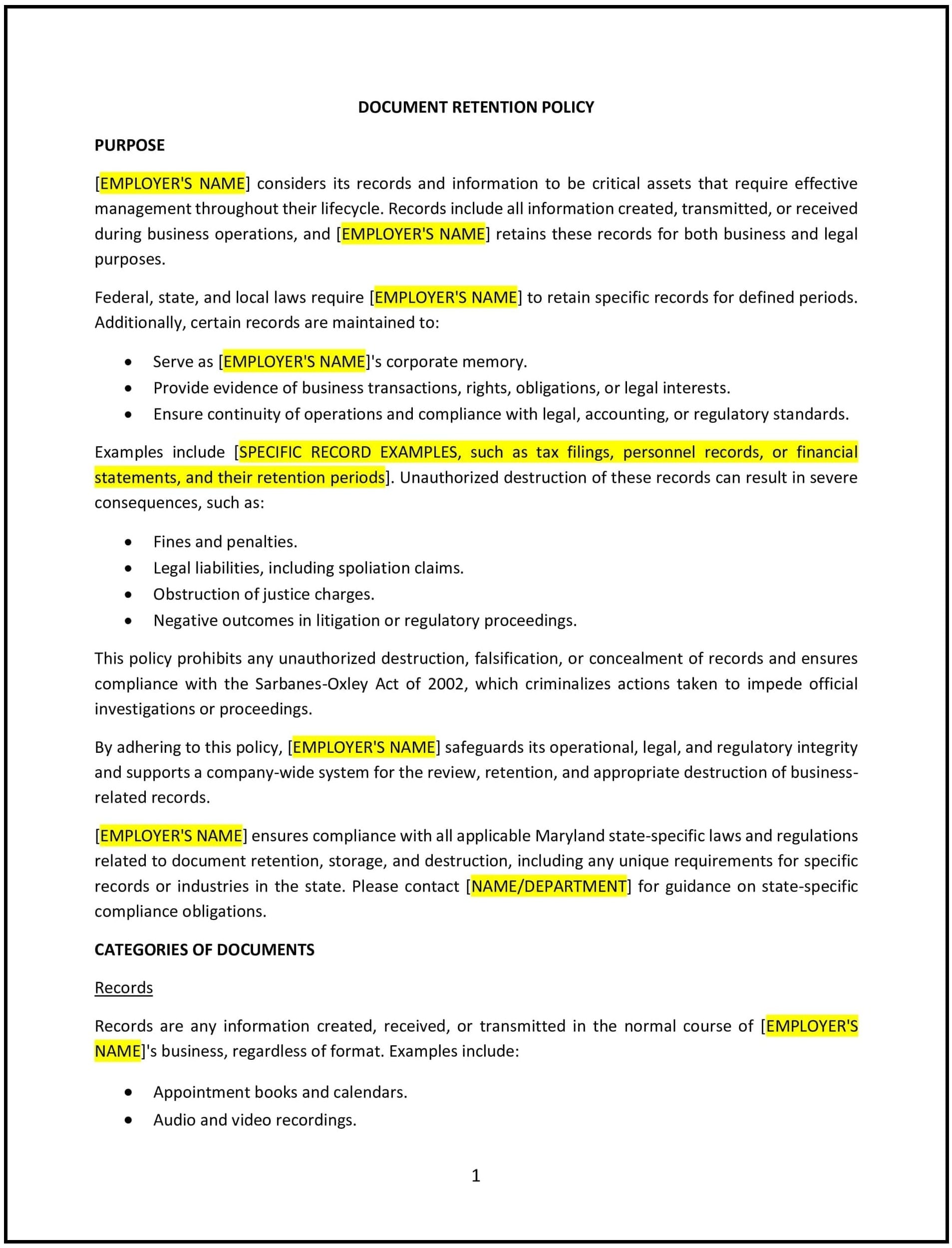Document retention policy (Maryland): Free template
Got contracts to review? While you're here for policies, let Cobrief make contract review effortless—start your free review now.

Customize this template for free
Document retention policy (Maryland)
This document retention policy is designed to help Maryland businesses establish guidelines for managing, storing, and disposing of business records. It ensures critical documents are retained for legal, operational, and historical purposes while preventing unnecessary storage costs or risks.
By adopting this policy, Maryland businesses can streamline document management, support accountability, and protect sensitive information.
How to use this document retention policy (Maryland)
- Categorize records: Define document types, such as financial records, legal documents, employee files, and operational reports, and assign retention periods to each category.
- Specify retention periods: Outline the required timeframes for keeping each type of document, reflecting Maryland-specific legal or regulatory requirements.
- Establish storage protocols: Detail how documents will be securely stored, whether physically or digitally, to prevent unauthorized access or loss.
- Include disposal procedures: Provide clear instructions for securely disposing of records once the retention period has ended, such as shredding or digital erasure.
- Assign responsibilities: Identify who is responsible for maintaining, reviewing, and disposing of documents within the organization.
- Conduct periodic audits: Schedule regular reviews to ensure compliance with the policy and identify records that are ready for secure disposal.
- Reflect Maryland-specific considerations: Address state regulations, such as those related to employment records, tax documents, or business licenses.
Benefits of using this document retention policy (Maryland)
Implementing this policy provides Maryland businesses with several advantages:
- Improves efficiency: Streamlines document management by eliminating unnecessary records.
- Reduces legal risks: Ensures records are retained for required periods to meet legal or regulatory obligations.
- Protects sensitive information: Safeguards confidential data through secure storage and disposal practices.
- Enhances accountability: Clearly defines roles and responsibilities for managing business records.
- Saves costs: Minimizes storage expenses by systematically disposing of outdated records.
Tips for using this document retention policy (Maryland)
- Train employees: Provide training on document classification, retention periods, and secure disposal methods.
- Use digital tools: Implement software for document tracking and automated alerts for retention deadlines.
- Regularly review: Periodically assess retention schedules to ensure alignment with Maryland laws and business needs.
- Maintain a retention schedule: Include a detailed chart or table outlining retention periods for each document type.
- Stay informed: Monitor updates to Maryland regulations that may impact recordkeeping practices.